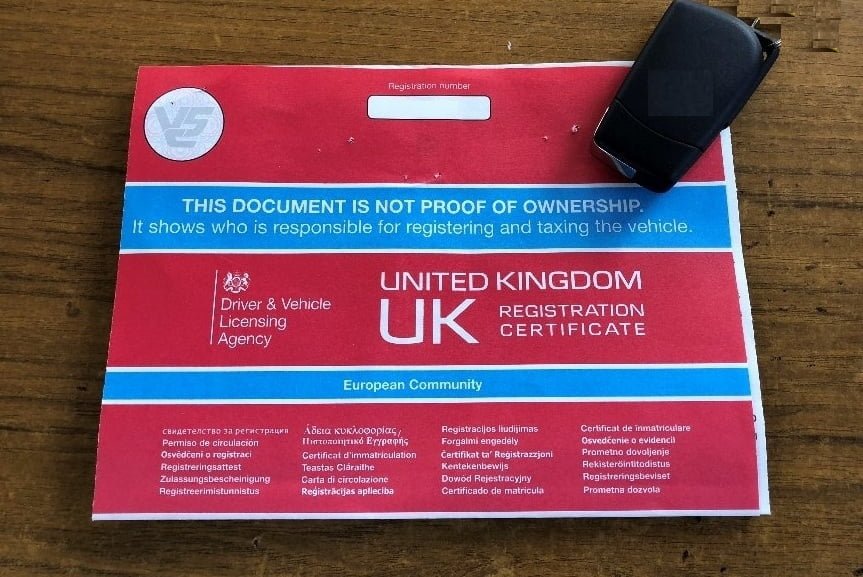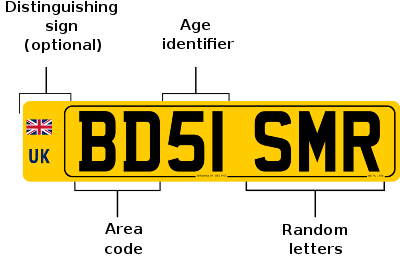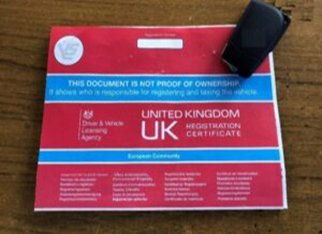
Have you ever stopped for a moment to think about what your registration number actually reveals about you? Unless you have a private plate on your vehicle instead of one issued to the vehicle through the current system, even a casual bystander will be able to tell roughly how old your vehicle is and where it was originally registered from your reg number.
However, for those with access to the appropriate online databases, your registration number can reveal an awful lot more, and you might be surprised at just how many people have access to some of these databases. Let’s take a look then at what information is directly linked to your registration number, who has access to it, and why they have that access.
Why do we have registration numbers?
The whole point of registration numbers is they make vehicles and owners identifiable; that’s just what they’re for. Please note that I specifically say owners and not drivers because drivers are not directly identifiable from registration plates. Of course, contacting the owner of the vehicle through the registration number will inevitably lead to the driver being identifiable in most cases.
When there were only a few cars around in the very early days of the motor car there was no need for registration numbers, and that’s because if anyone was rich enough to own a car they’d be known to most people around and so would their vehicle. But as the number of cars started to grow it became obvious that some way of identifying the vehicle and its owner was necessary to enforce the law, and that’s why we have registration numbers.
What information is linked to your registration number?
Some of the information held about us that’s linked to a registration number is pretty obvious. We all know that our name, address and details of our vehicle are linked to the registration number of our vehicle, or at least the name and address of the registered keeper and the owner of the vehicle.
However, those are just the most basic and obvious details that are linked to a number plate and there’s plenty more that can be revealed if someone has the right level of access to the right databases. Thankfully, the most sensitive stuff should only be available to the likes of the police, but you might be amazed at how many others can legally find things out through your registration number.
There are two main databases the DVLA operates and there are different levels of access available to different organisations. The two databases are the driver register and the vehicle register, and while the DVLA is legally obliged to protect the privacy of individual motorists it holds details of on both registers, there are several lawful circumstances in which the DVLA can release data from the registers.

DVLA driver register:
It’s the DVLA’s driver register that holds the most sensitive details linked to your number plate, and this is the one where access is naturally most restricted. The driver register holds details that include names, addresses, dates of birth, photographs, entitlements, endorsements, convictions and even any relevant medical information that could affect someone’s ability to drive.
DVLA vehicle register:
The information held about each motor vehicle in the DVLA vehicle register includes the registration number, vehicle identification number (VIN), the vehicle make and model, emissions data, the vehicle’s current tax status, the date the vehicle was acquired and when it was disposed of. This register also holds some details also held on the driver register such as the registered keeper’s name and address.
Who has access to DVLA databases?
If you actually give it some thought you can probably think of a lot of the organisations that can access information from the DVLA through your registration number. As far as allowing access is concerned, the government’s website states:
“Driver data may be shared with other government departments or public sector bodies who can demonstrate a legal power to allow it and meet the DPA requirements. The reasons why the information is being requested and how it may be used e.g. driver testing, road traffic enforcement and sentencing must be clear. The release of driver data is more limited than vehicle information due to the nature of the information held.”
That all sounds fair enough, but read on and things start to get a little more concerning.
“Driver information may be shared with other organisations such as car hire companies or employers wishing to confirm their entitlement to drive with the driver’s authorisation. The organisations must show a demonstrable and relevant need to obtain that information.”
So who can show a “demonstrable and relevant need” to access information the DVLA holds about us, and who decides whether they qualify for access?
In fact, anyone at all can request access, but requests for access to DVLA data have to be made by completing a data request form which is then submitted to the DVLA’s Data Sharing Strategy and Compliance Team. The form asks for details such as what actual data is required, why it’s needed, and how the applicant intends to use and store the data.

What data can you apply for access to?
Data the DVLA can supply to companies requesting access is broken down into three categories, which are bulk data, anonymised data and mileage data.
Bulk data sets can be supplied to certain companies and the data is made up of 47 different information fields about a vehicle. Access is granted to the likes of vehicle history check companies supply the public and the motor trade.
Anonymised data sets are mainly used for marketing purposes, and these are not as comprehensive as bulk data sets as they are made up of vehicle identifying information such as the make, model and a partial postcode.
Finally, certain companies can be granted access to vehicle mileage data to help buyers check a vehicle’s mileage to make sure it’s genuine.
However, access to the DVLA driver register is granted to a lot of agencies and companies who use it to track vehicle owners down to collect road traffic and parking fines. These companies employ a lot of people and this presents potential opportunities for rogue individuals to access information for nefarious purposes. If you think all your registration plate reveals is your vehicle’s age and where it was registered then think again.



